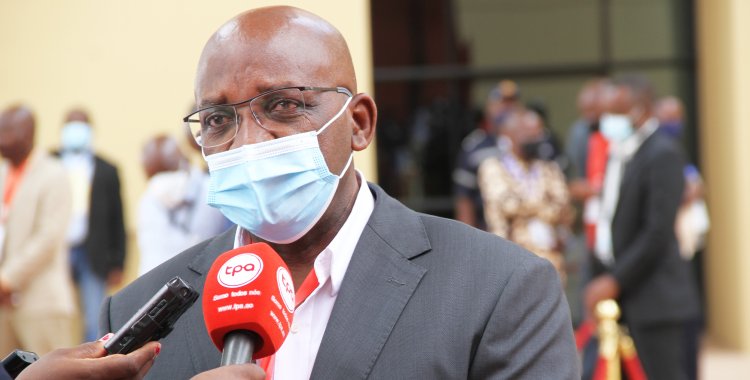The announcement of the approval by the Government of a bill to amend the Law on Environmental Conservation Areas so that mineral resources can be exploited in conservation areas was criticized, in an open letter, by environmental organizations.
On the subject, Lusa questioned Jomo Fortunato how he received the reaction of environmentalists, who pointed out "balance" as the key word for understanding oil exploration in protected areas.
"It is balance, because the two senses give life. Life in the reserves and life in the oil, to help the populations we need money, to put electricity, water, we need money," said the minister.
He stressed that, on the other hand, there is also ecology, "it's all life.
"So it is necessary to restore the balance and ask the environmentalists for their contribution to this balance," said Jomo Fortunato, adding that "the environmentalist when he criticizes is not out of the process.
"He is within the process, and has to help the State. Sometimes false problems are created, false polemics [because] you have life on the left side and you have life on the right side", he stressed.
Last week, EcoAngola and the Kissama Foundation, in a statement, considered "shocking" the government's intention to change the legislation in force.
According to the organizations, an open letter was written, addressed to the minister, in which they expressed their concern and appealed, with suggestions, "that if applied, could contribute to the protection of Angola's natural heritage, which can directly benefit thousands of people, ensure economic resilience and be a source of national pride.
In the letter, the defenders of the environment considered that the natural heritage, unlike what happens with mineral resources, "which are depleted or quickly lose value - as is happening with oil resources in recent years, are invariably the source of greater sustainable wealth and pride of nations.
"Natural heritage has the power to contribute to sustainable development, not only linked to the tourism sector, but also to the sustainable use of natural resources," the charter said, noting that "if well managed, natural heritage can improve the quality of life of current and future generations while safeguarding traditional ways of life, protecting ancestral cultures and contributing to the projection of a positive image of the country internationally.
The two organizations called for the effective protection of the 14 environmental conservation areas defined in Angola to be guaranteed immediately. They also recommended the transparent identification and subsequent signing of partnerships with organizations that have proven experience in managing conservation areas in the region, with the aim of training national cadres so that in the future the country will be self-sufficient at this level.
The organizations also called for the creation of the National Scientific Commission for Biodiversity, foreseen in the "National Biodiversity Strategy and Action Plan 2019-2025, to support, advise and monitor the decisions and actions of the Ministry of Culture, Tourism and Environment.
The Council of Ministers approved the proposed law to amend Law 8/20, of 16 April, Law on Environmental Conservation Areas, to allow oil exploration in these areas not have a negative impact on the ecosystem.
The document proposes amendments to articles 13, 14 and 40 a) and e) of the law, which will have implications for the exploitation of mineral resources, oil and gas in protected areas.







